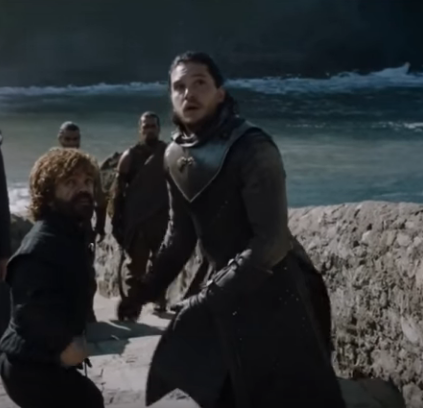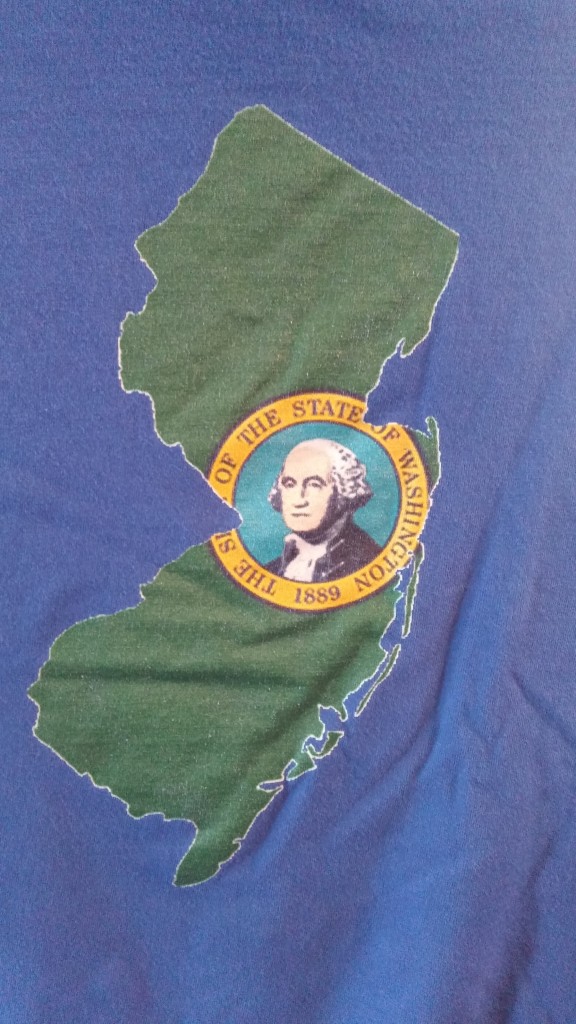
By Matt Rooney
_
A disclaimer, Save Jerseyans: I’m a huge ‘Game of Thrones’ fan (of both the show and the A Song of Ice and Fire book series upon which it was based).
Another disclaimer: I’m one of those fans who loved the early seasons, liked season 5, 6 and 7 well enough, but hate Season 8 with the fiery fury of a thousand angry dragons. The rushed writing, sloppy production, poor dialogue and suspect character arc decisions are piling up and taking many of us emotionally out of the story, one which arguably WAS the finest work of high fantasy since Lord of the Rings.
–
This post isn’t a critique of GOT. I’d love to do one! But we generally stick to politics/government/culture/issues of public interest around here, not television analysis or episode predictions. Can’t do it all.
Well done or not, there are still plenty of lessons to be learned from observing how characters like Jon Snow, Daenerys Targaryen, and Tyrion Lannister conclude their story lines during Sunday’s series finale. After all, the beauty of GOT is that it’s not just fantasy, but an immersive political, human drama with high fantasy elements. ‘House of Cards’ with sorcerers and zombies.
For example: the most harm is often accomplished by political leaders with “good” intentions.
***
SPOILER ALERT: Read no further if you haven’t watched through Season 8, Episode 5…
***
Dany’s decision to roast Kings Landing rather than accept the city’s defenders’ surrender constitutes a war crime. Shocking? Yes and no. What makes it so heartbreaking and confusing isn’t just the flimsy build-up to this major heel turn; it’s the fact that the Targaryen princess and would-be ruler of Westeros began her political career as a “break of chains” and avenger of the oppressed. She stormed her way throughout Essos (the GOT/ASOIAF universe’s version of the Asia/Middle East region) with an espoused goal of casting down slave masters and liberating slaves.

She made mistakes but never burned anyone who didn’t deserve it. She did some rough things (crucifying slave masters), but none of it was CRAZY or illogical, at least by Machiavelli’s rubric. Along the way, she appeared to be evolving into the sort of tough-but-fair ruler the Seven Kingdoms so desperately needed after the hapless Robert, too-honorable-to-be-effective Ned, sadistic Joffrey, weak Tommen and selfish Cersei.
Unfortunately, as is so often the case, “[y]ou either die a hero, or live long enough to see yourself become the villain.” That’s from the Batman universe, not GOT, but it fits Dany’s arc perfectly.
Why did she fall? The books and show hint at a long-standing family history of mental illness which impacts some Targaryens, a defect most clearly evidenced by her father, the infamous ‘Mad King’ who executed Jon Snow’s grandfather and uncle. Yet one gets the sense this is more than a mere matter of genetic roulette.
Plenty of fans loved Dany, and plenty of others hated her, too, even before she took a genocidal turn. The most commonly cited reason: she’s arrogant. Entitled. Dare I say it… “privileged”? Yes, yes, and yes.
Even when she was breaking chains instead of incinerating innocents, Dany’s less-admirable motivation was always taking back what belonged to her, by right (at least in her mind): the Iron Throne of Westeros. We heard her say it a hundred times. There’s an ends-justify-the-means angle to Dany’s story WHICH would’ve been better served had Dany gone genocidal for an actual reason, e.g. she needed to do something terrible to win the battle of Kings Landing. Bells made her snap? Really? But I promised not to make this a rant against the show or a artistic critique.
The bottom line: Dany believes SHE is destined to rule. It’s her right. SHE knows what’s best for everyone. It’s a superiority complex which, justified or not, is clearly dangerous in how it manifests externally. One of the more compelling exchanges from the show’s later seasons came when a former slave visited the court of Queen Daenerys and expressed a desire to return to servitude. The reason, he explained, was that his life prior to emancipation was better than his life under Dany. This scene wasn’t intended to make anyone sympathize with the institution of slavery; the intent, I’m sure, was to cause us to question Dany’s simplistic worldview wherein she is the savior and everyone else’s well-being is tied to her political success.

Back here in the real world, self-anointed messiahs and arrogant utopians often end up inflicting the most harm by conflating the common good and their own good. Henry VIII stands as a prime example: a virtuous, modern, “humanist” prince whose selfish desire for romantic love and a legacy resulted in war, social conflict, and a lot fewer heads sitting where they belong: on people’s shoulders. At one point? He might’ve actually believed he was rescuing his country and the continent from Rome and bad religion. Ultimately, however, the independence of England took a backseat to Henry’s insatiable appetite for ever-greater power over his personal universe.
Better leaders are represented by the likes of Cincinnatus, George Washington, and Dany’s nephew (ew): Jon Snow a/k/a Aegon Targaryen. Men who don’t want power and/or are at the very least willing and able to set power aside for the good of their people. There are no perfect leaders. We don’t live in a perfect world.
What matters is that the class of leader represented by Washington and the fictional Snow never makes the mistake of confusing its own well-being with that of the realm.
With a Snow on the throne? He will make mistakes, but they’re less likely to result in you, your family, and your property going up in flames.
The seismic contrast between Dany and Jon which has broken out into the open this season is an important one for a free people to recognize and internalize. GOT’s treatment of these deeper issues was always what made it so great. We can’t get a mulligan on Seasons 7 and 8. Let’s hope the finale doesn’t sacrifice one of the series’s most poignant themes for the sake of subversion and CGI.
_
MATT ROONEY is a practicing New Jersey attorney, regular panelist on ‘Chasing News’ with Bill Spadea, and the founder and blogger-in-chief of Save Jersey.
_


